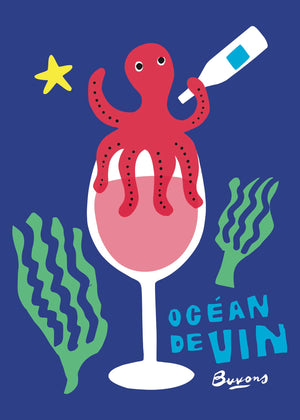
Grapes: Cartoixà Vermell
Region: Catalonia, Spain
Vintage: 2023
Viticulture: Organic, Regenerative + Biodynamic practices
Soils: Sandy Loamy
Vinification: destemmed and macerated for 32 days at low temperature (between 15-18ºC). Once the maceration is finished, the berries are gently pressed
Aging: on the lees for about 9 months in stainless steel tanks
Fining or Filtering: None
Sulfur: Minimal added
Notes from the Importer: This wine is made from a special clone of Cartoixà (the local Tarragonese name for the typical Catalonian white grape Xarel.lo), the Cartoixà Vermell (or Xarel-lo Rosado) whose berries have a reddish skin color. The perfect material for a skin contact wine!
Moisès Virgili is a farmer born and bred – coming from a farming family in La Nou de Gaià, a small town near the city of Tarragona some 60 miles south of Barcelona, he grew up surrounded by vineyards, olive groves and carob trees. Since childhood, he’s dreamed of having a winery showcasing this unique Mediterranean heritage while working as naturally as possible.
“We believe that making organic, sulfite-free wines is more than a whim or an invention, but a necessity,” Moisès explains. “The pollutants that are present not only in the air we breathe, but in everything we eat, the clothes we wear, the materials we use make us sick, weaken us, make us vulnerable. Going back to the origins is part of this process of change: cultivating the land with respect, making wines by listening to them, opening the senses to those around us.”
Moisès studied enology and then gathered experience all around the world, from Chile to South Africa, or other cellars located in different areas of Catalonia: Priorat, Penedès or Conca de Barber. In 2010, in the midst of an economic crisis, he finally decided to launch himself into the adventure. Celler 9+ was born with the idea of developing a diverse range of wines expressing indigenous grapes like Cartoixà (the local name for Xarel-lo, the classic Catalonian grape) or Sumoi.
What started as a garage operation with the support of Moisès’ friends and family gradually flourished into a 35-hectare operation, half of which is dedicated to vines and the other half to a mix of olives, grains and carob trees. Everything is farmed organically – “Our philosophy is that the future will be environmentally friendly and sustainable … or there won’t be one at all,” Moisès says solemnly – and uses many regenerative and biodynamic techniques.
The soils are fertilized for four months with plant infusions and matured manure from a nearby dairy farm. Biodynamic preparations 500 and 501 as well as other immunizing concoctions are used in order to improve plant and soil health: “I don’t consider us a biodynamic cellar; we’re closer to the regenerative farming philosophy. But the label is not important, what matters is that we continuously search for techniques to reverse climate change, striving to restore the organic matter and biodiversity of the degraded soil.”
In the cellar, Moisès applies a similarly common-sense and purist approach: “We’ve always been committed to leaving preservatives behind; we don’t like antiseptics, and that’s why we don’t use sulfur in most of our wines. We strive to make conscious wines so that you can enjoy them with family, friends or all by yourself, without fearing the consequences that a poorly made wine has on you the morning after,” the winemaker laughs. “After all, we’re drinking the wines ourselves. And we seek to make everything fair and balanced. Everything in its right place…”




